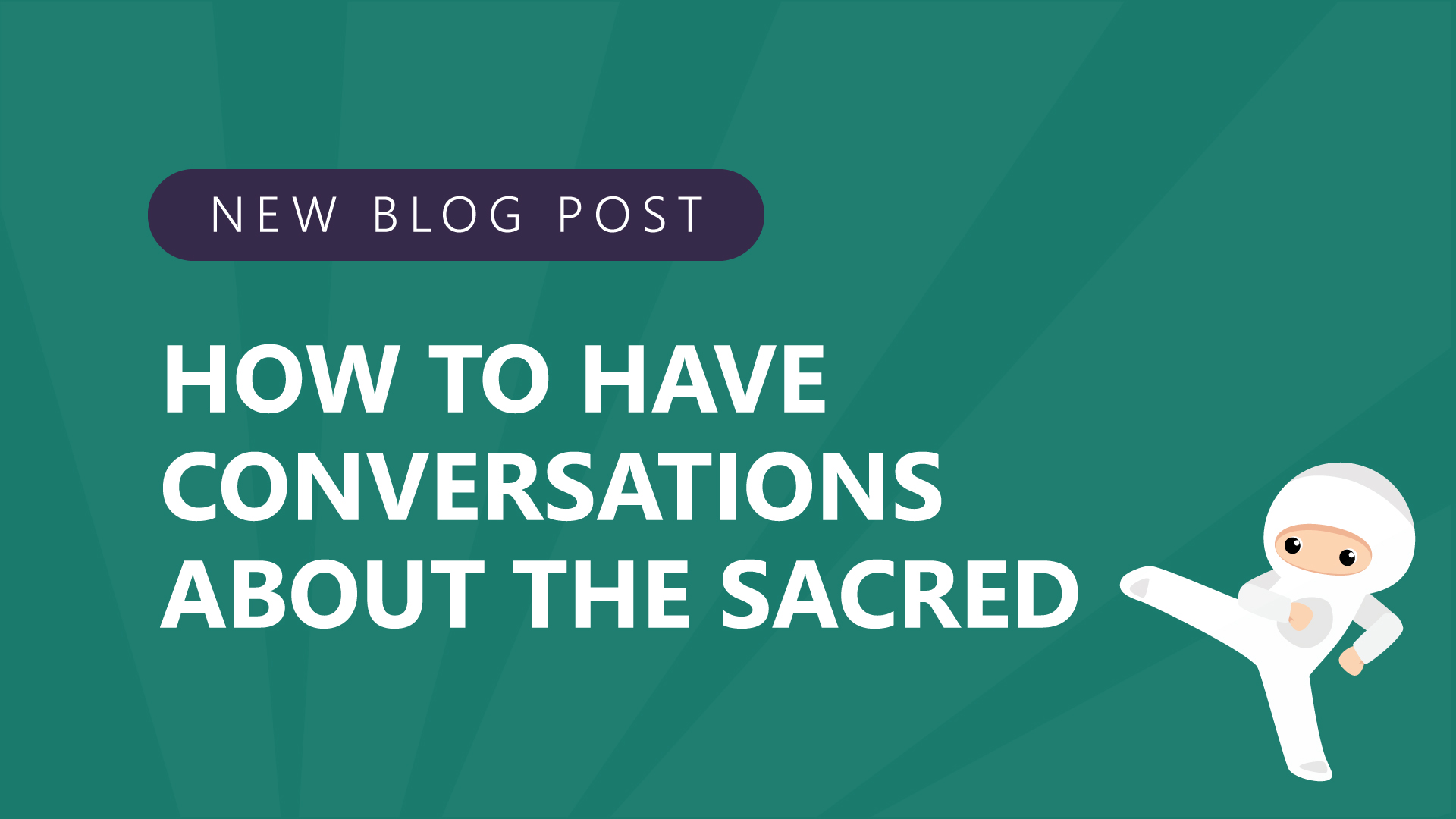Now that you’ve agreed to negotiate, you need to learn what things are sacred to the counterparty. How can you avoid attacking or questioning those areas? When you have to, what do you do? How do you have conversations about the sacred?
According to Daniel Shapiro, it always comes back to building a relationship. If you want to talk about something deeply meaningful, everyone needs to feel safe. They need to trust the other person.
Vulnerability requires bravery
Daniel worked to train senior-level Israeli/Palestinian international diplomats. Eight months into a training program, he sees a group huddled together in a corner, deep in conversation. He catches the eye of a participant, and he was curious.
Later that evening, he found out that it was the first time they had ever jointly crossed parties to talk about the conflict. It was eight months in. Daniel was amazed that it took that long for them to speak. But then he realized that he didn’t understand the vulnerability it took for them to talk about those issues.
Daniel points out that the fundamental component is helping people build relationships and establish a brave space. If you’re going to come together to talk about serious issues, you need to be brave. You need to be vulnerable, and that’s scary. But it was a rewarding jump.
The lures of tribalism
The counterparty needs to be willing to be challenged—to some degree—on those sacred things. But the goal of the conversation is learning and mutual respect. It’s so easy for each side to start making declarations. Things go downhill from here.
Why does it all matter? How did it come about?
Daniel was called into Macedonia in the mid-90s. Ethnic tension was rising between the Macedonians and the Albanians. There was a possibility of civil war. Daniel and his colleagues developed an exercise. He did the same exercise with global leadership in Switzerland.
Daniel met the leadership in a small room in a congress hall. Forty-five global leaders were divided into six different groups. He shared his belief that as much as we’re becoming connected, it’s becoming harder to connect. The more homogenized we become, the more we want to find individuality. This moves us into a tribal world. A tribe is any group to which you feel a family-like connection.
What Daniel realized is that you can create your own tribe in a group setting.
The exercise that changed the world
Daniel gave each group questions to answer and discuss. He told them to make it fun—but take it seriously. In the process, they developed a group identity. After they completed the exercise, Daniel said—in the most boring voice—“Let’s debrief this exercise.” Because, of course, they were all wondering what the point was.
Suddenly, the lights went black, and an “alien” came barging into the room. The alien said: “I am an intergalactic alien. I’ve come to destroy the earth. I will give you one opportunity to save the world from complete destruction. You must choose one of these tribes to be everyone’s tribe. You have three rounds of negotiation to do so. If you can’t come to an agreement, the world will be destroyed.”
As ridiculous as it sounds, the global leaders took this exercise very seriously. Round one, no agreement, round two, no agreement. When they got to round three, six representatives came to the center of the room, five men and one woman. The men start yelling.
The woman cannot get a word in. She gets utterly enraged and stands on a barstool and yells, “This is just another example of male competitive behavior. You all come to MY tribe.” One tribe joined hers, and the others refused. Rounder three is over. Boom. The world is destroyed.
Daniel has run this exercise around the world. Daniel notes that “Almost without fail, the world explodes…over the course of 50 minutes, people feel so connected to a specific identity that they’ve created in that 50 minutes, that they would rather cling to that identity than save the world.”
Learn more about identity, conversations about the sacred, and challenging taboos in episode #189 of the Negotiations Ninja podcast. Daniel and I have a deep conversation that doesn’t disappoint.

